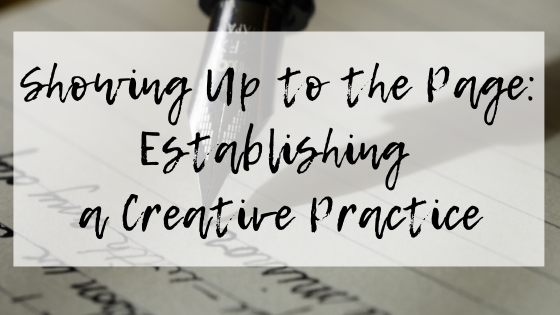
The beginning of the year often brings with it reflections on the year that’s been, or goals and soon-to-be abandoned resolutions for the next twelve months. We might think about what we would like to leave behind and what we hope to step into.
It usually means transitioning from holidays back into work or study. If you’re at school, it may mean saying goodbye to lazy days of relative freedom and once again being confined to the four walls of a classroom.
Unfortunately, it often means sidelining our creative selves even more than usual as we scramble to fit in study, work, extra-curricula activities, time spent with friends and family, time lost scrolling social media, and whatever else life throws at us.
How do we, then, prioritise our creativity this year regardless of what else we have programmed into our lives? Especially in the midst of so much ongoing uncertainty?
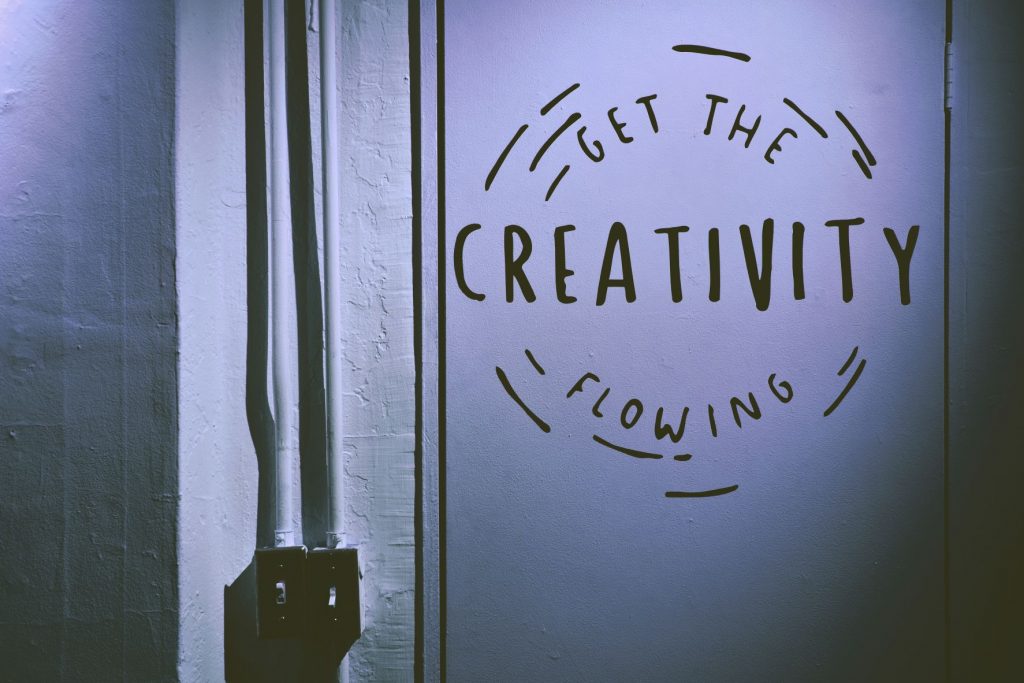
But if you and I don’t take our creativity seriously, nobody else will.
Many of us believe we need a large chunk of time to focus seriously on a creative project. And so we keep on waiting for the magical day when we have what we think will be “enough time”.
But you know what I’ve finally discovered?
For me at least, I’m better off turning up for a short time each day than putting aside a substantial chunk of time once a week (which can quickly turn into fortnightly or monthly). If I wait for special allocation of time, it’s either sequestered away by other more urgent demands, or I spend a significant chunk of mental energy trying to reconnect with the story. Turning up to the page every day, whether that’s for fifteen minutes or an hour, means I stay connected to the project I’m working on. My mind then continues to percolate ideas long after I leave my desk, especially if I follow my writing time with a walk or a swim.
Procrastination and Showing Up
My biggest stumbling block to writing has always been getting started. If they handed out grades for procrastinating, I’d be awarded an A+. It’s worse when I have too much on my to-do list. The resulting overwhelm causes an inertia, which results in me wandering around the house unable to settle on any one task.
But when I turn up to the page every day, getting started becomes less of an issue because it becomes a habit. There is less inclination to procrastinate because it just becomes part of my day. Currently, I meet a friend at 6.00 am to walk around our local lake. I then head straight to my desk (or my local cafe), where I sit with a pot of tea and my notebook, and write three pages longhand. It doesn’t matter what I write, although lately it’s been notes and conversations between the characters of a fiction project. Other days it’s thoughts about my memoir or notes for a blog post. What’s important is that I’m writing.

One writer friend is at her desk at 5.00 am every morning for an hour before her daughters wake up and need help preparing for school. Two others meet on Zoom at 6.00 am each morning as a form of accountability. Another friend is not an early riser and so finds time each evening after his children are in bed.
Only you can decide what works for you when it comes to prioritising your creativity, whether that’s writing or some other art form. What matters is that you show up.
Don’t wait for more time. Don’t wait for a better time. And especially don’t wait for inspiration. Shape that clay into a wonky pot. Sketch the horizon with the miscalculated depth perception. Write that crappy first draft.
I especially love the way author and writing mentor Chloe Higgins puts it:
“Show up to the page. Let the words suck.”

Just show up and begin.
And then show up again tomorrow. And the next day. And the day after that.
Over to You
- What it is that you look forward to leaving behind as we head into the new year?
- What would you like to step into—and how might you create space for that?
- How might your creativity offer you solace in a period of uncertainty or upheaval?
- What steps will you take to prioritise your creativity this coming year?
And Finally …
If you’d appreciate a few creative prompts to help you show up, then I’ve created a few just for you in my previous blog post, Creative Writing Prompts: New Perspectives.

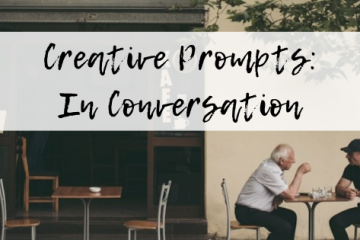
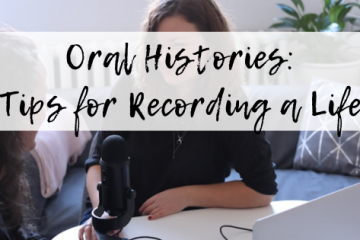
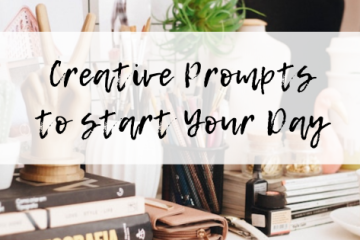
Really appreciate your thoughts on procrastination and ‘showing up’, Melinda – these are identical to my own experience. Staying connected to a long piece of work is so important, yet very easy to lose. Touching base with it every day is the only way that works for me. Momentum! Currently in an avoidance pattern – ha ha!!
Hi Deb, it’s encouraging to hear I’m not the only one. I’m not so sure why I didn’t realise it earlier in my writing journey! Hope you regain your momentum soon!